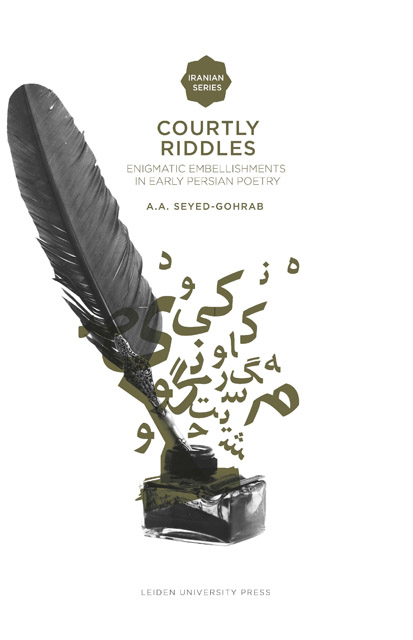Chapter Four - ‘A Nightingale without feathers’: Riddlers of the Late Ghaznavid and Early Seljuq Periods
Published online by Cambridge University Press: 19 November 2022
Summary
INTRODUCTION
Although there are some riddles in both narrative poems and panegyrics during the Ghaznavid period, they became more common, particularly in panegyrics, at the beginning of the Seljuq era. One possible reason for the sudden predilection for riddling nasībs is that competition between poets at the courts in Ghazna, Lahore and less centralized courts in the Iranian lands encouraged poets to display their virtuosity not only by introducing new genres and poetic forms in Persian poetry, but also by utilizing a new constellation of metaphors and imagery. The greater use of riddles in the openings of panegyrics first becomes evident in the Dīvān of Masʿūd Saʿd Salmān (d. 515/1121), who also introduced other literary forms such as the ḥabsiyyāt (‘prison poem’), shahrāshūb (‘disturber of the city’ poem), and bārahmāsā (poems in which the poet catalogues the Persian months, weeks and days of the months by referring to festivals) to the Persian literary arena. His Dīvān contains several conventional riddles on various objects and abstract ideas, but there are also poems which may not have been intended to be read as riddles, but which are so abstract that editors have characterised them as riddles without providing the reader with an answer. Such poems serve as examples of the way description can evolve into riddling. Such riddling descriptions were later to be more fully exploited by Masʿūd Saʿd's younger contemporary ʿUthmān Mukhtārī and Ḥakīm Sanāʾī, both of whom wrote poems to pay tribute to him.
MASʿŪD SAʿD SALMĀN
At least twelve riddles or riddling descriptions of various objects can be found in Masʿūd Saʿd's Dīvān. Several of these riddles refer to objects, such as a mirror, that had not previously been the subject of a riddle. As with other poets of the time, many of these riddles have no headings and we do not know whether the author intended to use these poems specifically as riddles or as complicated descriptions. In the most recent critical text edition of his Dīvān, Nūrīyān has excluded all rubrics from the poems. In Yāsamī's edition, the editor has added rubrics to each poem, indicating to whom the poems were dedicated and in several cases characterising a poem as a riddle and giving an answer to it.
- Type
- Chapter
- Information
- Courtly RiddlesEnigmatic Embellishments in Early Persian Poetry, pp. 85 - 144Publisher: Amsterdam University PressPrint publication year: 2010



